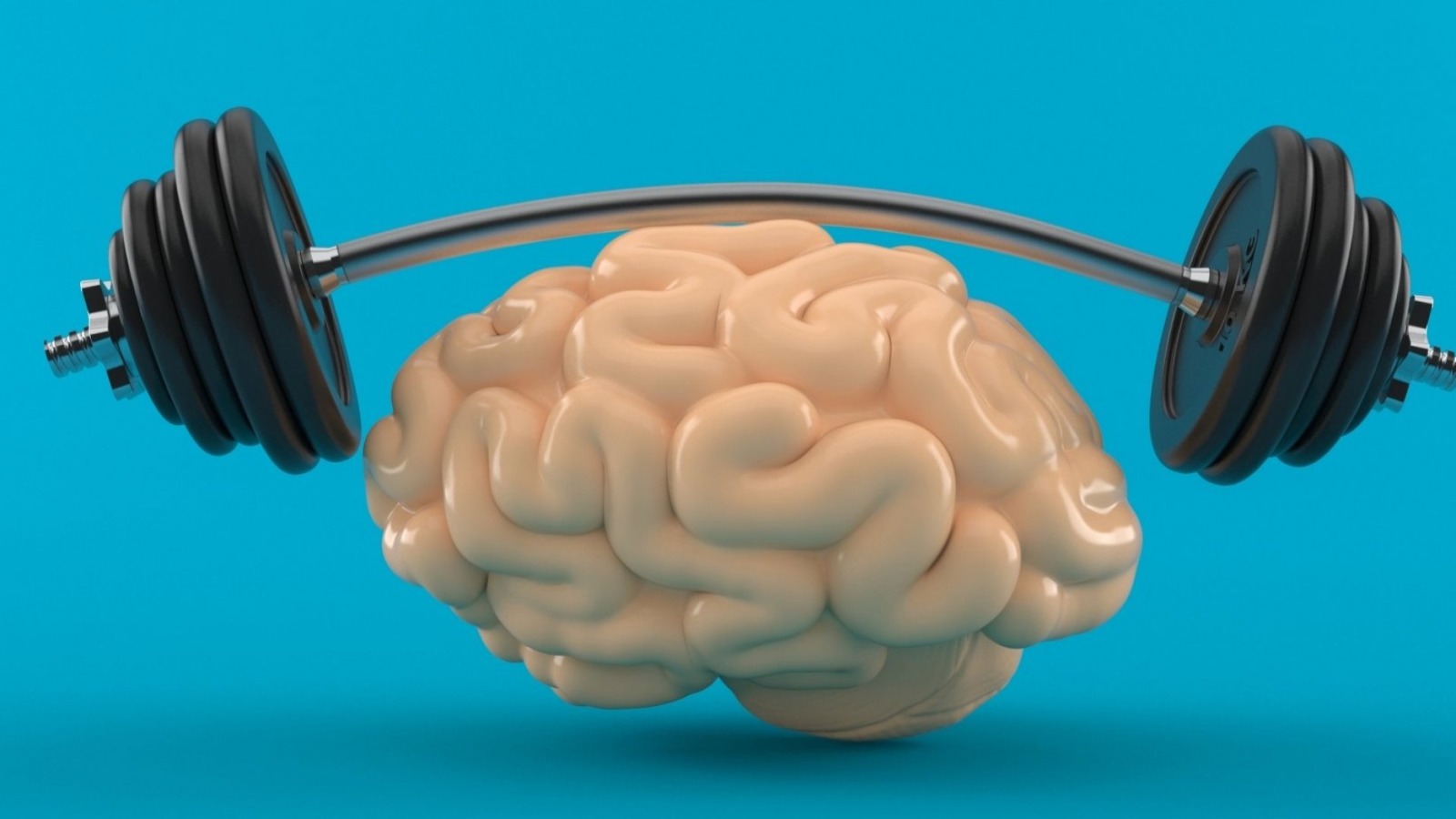
Mental Endurance Training: Building a Stronger Mind for Fitness Success.
Mental endurance is the hidden key to fitness success, enabling individuals to overcome physical and psychological challenges, sustain motivation, and push through discomfort. By training the mind alongside the body using techniques such as mindfulness, visualization, goal-setting, and controlled exposure to stress, one can achieve consistent progress, improved performance, and long-term resilience in both fitness and life.
💪 Fitness Guru
52 min read · 11, Oct 2025

Mental Endurance Training: Building a Stronger Mind for Fitness Success
Fitness is often portrayed as a physical journey—a battle of strength, speed, and stamina. While the physical aspect is undeniable, the hidden pillar of success lies in the mind. Mental endurance, the ability to persist, focus, and thrive under physical and psychological stress, is increasingly recognized as essential for fitness achievement. Whether you are an elite athlete or a beginner aiming to sustain a consistent workout regimen, mental endurance can be the difference between giving up and achieving your goals. This article delves deep into the concept of mental endurance training, strategies to strengthen your mind, and its transformative impact on fitness success.
Understanding Mental Endurance
Mental endurance is the capacity to maintain focus, motivation, and resilience when faced with physical strain, boredom, or psychological barriers. It is distinct from mental toughness, which often refers to short-term bursts of courage or grit. Mental endurance is about long-term consistency, sustaining effort despite discomfort, and overcoming the mental barriers that often derail physical progress.
Key Components of Mental Endurance in Fitness:
- Resilience: The ability to recover quickly from setbacks, injuries, or plateaus.
- Focus: Maintaining concentration on workouts or goals without distraction.
- Motivation: Sustaining the internal drive to continue, even when external rewards seem minimal.
- Self-Regulation: Managing negative thoughts, emotions, and impulses during challenging workouts.
Athletes and fitness enthusiasts often encounter a mental wall—a point where the body feels capable but the mind says “stop.” Mental endurance training teaches the mind to override these premature signals, enabling higher performance and consistent progress.
The Science Behind Mental Endurance
Recent studies in sports psychology highlight that mental endurance is as trainable as physical endurance. Neuroscience reveals that repeated exposure to challenging situations strengthens neural pathways associated with self-control, focus, and perseverance. Key physiological and psychological mechanisms include:
- Neuroplasticity: Consistently challenging the mind through difficult workouts or cognitive exercises creates new neural connections, enhancing focus and resilience.
- Stress Response Regulation: Training the mind to handle discomfort lowers the cortisol spikes associated with stress, allowing athletes to push through tough sessions without mental burnout.
- Dopamine Management: Mental endurance helps regulate dopamine—a neurotransmitter linked to reward and motivation—reducing the need for instant gratification and fostering long-term goal persistence.
Understanding the science behind mental endurance emphasizes that a strong mind can directly influence physical performance, recovery, and overall fitness progression.
Mental Barriers in Fitness
Several mental barriers prevent people from achieving fitness success:
- Fear of Failure: Anxiety about not meeting fitness goals can stop individuals before they even start.
- Negative Self-Talk: Thoughts like “I can’t do this” or “I’m too weak” weaken motivation and reduce workout effectiveness.
- Impatience: Modern fitness culture often emphasizes rapid results, making people give up when progress feels slow.
- Distractions: Smartphones, social media, and busy schedules fragment attention and reduce workout quality.
- Physical Discomfort Misinterpretation: Beginners often misinterpret normal workout strain as harmful pain, leading to avoidance.
Mental endurance training targets these barriers, helping individuals reframe challenges, embrace discomfort, and persist with consistent effort.
Techniques to Build Mental Endurance
1. Mindfulness and Meditation
Mindfulness, the practice of staying present in the moment, helps reduce anxiety and strengthens focus. Meditation improves awareness of thoughts and emotions, enabling better self-regulation during physically demanding activities.
How to Apply:
- Practice 10–20 minutes of daily meditation, focusing on breath or body sensations.
- During workouts, notice fatigue and discomfort without judgment; acknowledge it and continue moving.
2. Visualization and Mental Rehearsal
Visualization involves mentally rehearsing workouts, competitions, or fitness goals. This trains the brain to anticipate challenges and reinforces a positive outcome-oriented mindset.
How to Apply:
- Visualize completing a challenging run, lifting heavier weights, or achieving body composition goals.
- Include all senses: feel the sweat, hear your breath, and see yourself succeeding.
3. Goal Setting and Micro-Goals
Breaking down long-term fitness objectives into smaller, achievable milestones prevents overwhelm and maintains motivation. Mental endurance thrives on small wins, building confidence over time.
How to Apply:
- Instead of aiming to run 10 km immediately, start with 2 km and progressively increase distance.
- Celebrate milestones, no matter how small, reinforcing persistence and positive thinking.
4. Exposure to Controlled Discomfort
Deliberately pushing beyond comfort zones strengthens mental endurance. This could include high-intensity workouts, cold exposure, or challenging training routines.
How to Apply:
- Try high-intensity interval training (HIIT) sessions that push your heart rate near its maximum.
- Engage in workouts that last slightly longer than usual, training the mind to endure extended discomfort.
5. Cognitive Restructuring
Reframing negative thoughts into positive or neutral statements reduces self-sabotage and builds resilience.
How to Apply:
- Replace “I can’t do this” with “This is challenging, but I am improving.”
- Use affirmations or motivational self-talk before and during workouts.
6. Mind-Body Exercises
Yoga, Pilates, and martial arts blend physical exertion with mental focus, naturally strengthening mental endurance. Practices that emphasize breath control and body awareness teach the mind to remain calm under stress.
Nutrition and Mental Endurance
Fueling the brain is as important as training it. Nutrition influences cognitive function, mood, and mental resilience.
Key Strategies:
- Balanced Diet: Include complex carbohydrates, lean protein, healthy fats, and micronutrients for sustained energy.
- Hydration: Dehydration reduces cognitive function and endurance.
- Omega-3 Fatty Acids: Support brain function and reduce mental fatigue.
- Avoid Excess Sugar and Processed Foods: Prevents energy crashes and mood swings.
Rest, Recovery, and Sleep
Mental endurance also relies on adequate rest. Sleep deprivation impairs decision-making, focus, and emotional regulation, undermining both physical and mental performance. Integrating rest days, quality sleep, and relaxation techniques ensures the mind remains sharp and resilient.
The Role of Accountability and Support
Social support and accountability are crucial in developing mental endurance. A workout partner, coach, or supportive community provides encouragement, feedback, and motivation during challenging phases. The sense of shared struggle reinforces persistence and reduces mental fatigue.
Measuring Mental Endurance
Unlike physical endurance, mental endurance is less tangible but can be assessed using behavioral and subjective markers:
- Consistency: Regularity in workouts despite obstacles.
- Stress Tolerance: Ability to maintain performance under pressure.
- Recovery from Setbacks: Speed at which one resumes training after failure or injury.
- Self-Awareness: Ability to recognize mental blocks and address them proactively.
Tracking progress through journals, apps, or reflective practices helps identify areas for improvement and celebrates incremental growth.
Practical Tips to Strengthen Mental Endurance Daily
- Start workouts with intention—visualize completion before lifting a weight or running a distance.
- Incorporate short bouts of mental challenges alongside physical training, like cold showers or complex skill drills.
- Practice delayed gratification—resist skipping workouts even when tempted.
- Reflect post-workout on mental breakthroughs: what discomfort you overcame, what negative thoughts you silenced.
- Regularly revisit fitness goals to maintain a sense of purpose.
Benefits of Mental Endurance in Fitness
- Enhanced Performance: Ability to push through physical limits without succumbing to mental fatigue.
- Consistency: Regular training regardless of distractions, plateaus, or discomfort.
- Injury Prevention: Awareness of true physical limits reduces the likelihood of overtraining.
- Resilience Beyond Fitness: Skills transfer to professional and personal challenges, improving overall life satisfaction.
- Improved Motivation and Satisfaction: Overcoming mental barriers fosters confidence and a positive relationship with exercise.
Mental endurance is one of the most underestimated aspects of fitness, yet it often determines who achieves lasting success and who gives up prematurely; while strength, speed, and stamina are crucial for physical progress, the mind acts as both a driver and a limiter of performance, shaping not only consistency but also the ability to push through discomfort, plateaus, and setbacks, making mental endurance training an essential part of any fitness journey. At its core, mental endurance refers to the capacity to maintain focus, motivation, and resilience in the face of physical and psychological challenges, allowing individuals to sustain effort over extended periods, recover from obstacles, and navigate negative thoughts that can sabotage progress, with key elements including resilience, which enables bouncing back from failures or injuries, focus, which keeps attention on workouts and goals despite distractions, motivation, which fuels continued effort even when external rewards seem absent, and self-regulation, which governs the management of stress, fatigue, and emotional responses during strenuous exercise; the science behind mental endurance further highlights its trainable nature, as neuroplasticity allows repeated exposure to challenging situations to strengthen neural pathways responsible for perseverance, stress-response regulation helps the brain manage cortisol spikes and prevent mental burnout, and proper dopamine management ensures motivation remains steady, reducing dependence on instant gratification and fostering long-term commitment. Many fitness enthusiasts struggle with mental barriers such as fear of failure, which can prevent starting or continuing a workout, negative self-talk that diminishes confidence and undermines effort, impatience caused by unrealistic expectations for rapid results, distractions like social media or busy schedules that fragment attention, and misinterpretation of normal physical discomfort as harmful, all of which mental endurance training can help overcome by fostering a mindset that embraces discomfort as part of progress. Effective strategies to develop mental endurance include mindfulness and meditation, which train individuals to remain present, reduce anxiety, and improve awareness of bodily sensations during exertion, helping to sustain effort despite fatigue; visualization and mental rehearsal, which involve imagining completing workouts or achieving fitness milestones, strengthening the brain’s expectation of success and boosting confidence; goal-setting with micro-goals, which breaks large objectives into achievable steps, creating a sense of progress and reinforcing persistence; controlled exposure to discomfort through high-intensity interval training, extended workouts, or challenging routines, which teaches the mind to tolerate strain and adapt to stress; cognitive restructuring, which replaces self-defeating thoughts with positive or neutral affirmations, enhancing resilience and focus; and mind-body practices like yoga, Pilates, or martial arts, which blend physical exertion with mental focus, breath control, and body awareness, naturally improving the mind’s capacity to endure stress. Mental endurance also depends heavily on proper nutrition, hydration, and sleep, as the brain requires stable energy, essential fatty acids like omega-3s, and adequate rest to function optimally; imbalances or deficiencies can lead to fatigue, decreased focus, mood swings, and reduced perseverance, emphasizing the need for a balanced diet, proper fluid intake, and sufficient sleep alongside physical training. Equally important is accountability and support, as training with partners, coaches, or communities provides encouragement, motivation, and shared experience that reinforces persistence and reduces mental fatigue, while reflection and journaling allow individuals to track progress, recognize mental breakthroughs, and identify areas for improvement. The benefits of mental endurance are profound, encompassing enhanced physical performance through the ability to push beyond perceived limits, consistency in workouts regardless of challenges, reduced risk of injury by recognizing true physical limits, transferable resilience that benefits personal and professional life, and increased satisfaction and confidence as overcoming mental barriers reinforces a positive relationship with fitness. Daily practical strategies include starting workouts with clear intention, practicing mindfulness to remain present, deliberately embracing minor discomfort, maintaining consistent routines, reflecting post-workout on mental and physical achievements, and regularly revisiting goals to reinforce purpose, all of which cumulatively strengthen the mind’s ability to persist. In essence, mental endurance transforms fitness from a purely physical endeavor into a holistic journey that cultivates discipline, resilience, and focus, showing that success is not merely about the body’s capacity but the mind’s ability to guide it through challenges, making it a critical skill for anyone committed to achieving long-term fitness results. Ultimately, building mental endurance ensures that individuals are not only capable of reaching their goals but also resilient enough to sustain progress over time, navigating the inevitable setbacks, plateaus, and discomforts with determination and confidence, proving that the mind, when trained with intention and discipline, is the most powerful tool in achieving lasting fitness success.
Mental endurance is an often-overlooked but crucial component of fitness success, serving as the bridge between physical capability and sustained achievement, and while many people focus on strength, stamina, and technique, it is ultimately the mind that dictates whether the body can consistently perform at its highest potential; at its core, mental endurance refers to the capacity to remain focused, motivated, and resilient in the face of both physical and psychological challenges, enabling individuals to push through discomfort, overcome setbacks, resist distractions, and maintain consistent effort over time, and it involves several interrelated factors including resilience, which allows one to recover quickly from injuries, plateaus, or failures; focus, which ensures attention remains on the workout or goal without wavering; motivation, which provides the drive to continue even when progress seems slow or results are distant; and self-regulation, which governs emotional responses, fatigue management, and the ability to persevere when faced with negative thoughts or external stressors, and understanding mental endurance also requires recognizing the mental barriers that prevent progress, such as fear of failure, which may prevent someone from starting or pushing through a workout, negative self-talk that erodes confidence and willpower, impatience arising from unrealistic expectations about rapid results, and distractions ranging from smartphones to busy schedules that fragment attention and reduce the quality of exercise, and these barriers are compounded by misinterpretation of normal physical strain as harmful pain, which can lead beginners to avoid necessary effort and prevent progress, and yet, despite these challenges, mental endurance can be trained and strengthened much like physical endurance, with neuroscience demonstrating that neuroplasticity allows repeated exposure to challenges to build stronger neural pathways associated with focus, resilience, and decision-making, while regulating the stress response helps reduce cortisol spikes that could otherwise lead to burnout, and effective dopamine management ensures motivation is sustained by providing long-term goal satisfaction rather than reliance on instant gratification, making the mind more adaptable to prolonged effort and high-pressure situations. Strategies to build mental endurance are diverse and multi-faceted, beginning with mindfulness and meditation, which improve present-moment awareness, reduce anxiety, and cultivate the ability to observe bodily sensations such as fatigue or discomfort without reacting impulsively, allowing individuals to push through challenging exercises with clarity and composure; visualization and mental rehearsal also play a critical role, as imagining successful completion of workouts or reaching fitness goals creates a neural blueprint in the brain, enhancing confidence and performance, while goal-setting with micro-goals ensures progress is measurable and incremental, reducing feelings of overwhelm and reinforcing persistence, such as breaking a 10-kilometer running goal into smaller stages or progressively increasing lifting weights over time, and controlled exposure to discomfort through high-intensity interval training, longer workouts, or physically demanding exercises trains the mind to tolerate strain and fosters resilience, teaching individuals that temporary discomfort is a signal of growth rather than harm, while cognitive restructuring allows negative or self-defeating thoughts to be reframed into positive affirmations, transforming the internal dialogue from “I can’t do this” to “This is challenging, but I am capable,” thereby strengthening determination and perseverance, and mind-body practices like yoga, Pilates, or martial arts integrate breath control, focus, and body awareness with physical exertion, naturally enhancing mental endurance by reinforcing the connection between physical effort and mental control. Mental endurance is further supported by proper nutrition, hydration, and sleep, as the brain requires stable energy, essential fatty acids such as omega-3s, and adequate rest to function optimally; poor nutrition or sleep deprivation can impair cognitive function, increase susceptibility to negative thoughts, reduce focus, and diminish persistence, emphasizing that mental endurance is not solely a psychological skill but a holistic practice intertwined with overall health, while social support and accountability amplify its development, as training with partners, coaches, or communities provides motivation, encouragement, and a sense of shared struggle that reinforces persistence, reduces perceived difficulty, and encourages adherence to training regimens, and tracking progress through journals, apps, or reflective practices allows individuals to measure improvements, identify mental breakthroughs, and refine strategies to overcome emerging challenges. The benefits of mental endurance extend beyond the workout itself, including enhanced performance by enabling individuals to push past perceived limits, consistent adherence to routines even in the face of obstacles, reduced risk of injury through increased awareness of true physical thresholds, transferable resilience that benefits personal and professional domains, and heightened confidence and satisfaction as overcoming mental barriers fosters a positive relationship with exercise, ultimately transforming fitness from a purely physical endeavor into a holistic pursuit that develops discipline, focus, and psychological strength. Practical daily strategies to cultivate mental endurance include beginning each workout with intention and visualization, practicing mindfulness during exercise to remain present and nonjudgmental about discomfort, deliberately embracing manageable levels of physical strain, maintaining regular consistency in training regardless of mood or external distractions, reflecting post-workout on personal achievements and mental breakthroughs, and revisiting both short-term and long-term goals regularly to reinforce purpose and motivation; over time, these habits collectively strengthen the mind’s ability to persevere, ensuring that setbacks, plateaus, or periods of fatigue do not derail progress, and creating a mental framework where challenges are seen as opportunities for growth rather than obstacles. Ultimately, building mental endurance is about training the mind to support the body, creating a feedback loop where increased mental resilience enhances physical performance, consistency, and satisfaction, and where overcoming mental barriers not only allows for higher achievement in fitness but also strengthens character, self-discipline, and life skills; the mind, when properly trained through consistent, intentional practices such as meditation, visualization, cognitive restructuring, goal-setting, exposure to discomfort, and supportive social networks, becomes the greatest asset in any fitness journey, making mental endurance the foundational pillar upon which lasting success, resilience, and personal growth are built, proving that true fitness is not measured solely by strength, speed, or flexibility but by the ability to persist, focus, and thrive when challenges inevitably arise.
Conclusion
Mental endurance is a cornerstone of fitness success. By training the mind alongside the body, individuals can overcome fear, discomfort, and distraction, achieving goals that once seemed impossible. Techniques like mindfulness, visualization, goal-setting, controlled exposure to discomfort, cognitive restructuring, and mind-body exercises all strengthen the mind’s capacity to persist. Proper nutrition, rest, and social support further enhance mental resilience. Developing mental endurance not only boosts physical performance but also improves overall life satisfaction, stress management, and personal growth. Ultimately, fitness success is as much a mental journey as it is a physical one, and investing in mental endurance ensures long-term, sustainable achievement.
Q&A Section
Q1 :- What is mental endurance in fitness?
Ans:- Mental endurance is the ability to maintain focus, motivation, and resilience during physically and mentally challenging situations, enabling consistent fitness performance despite discomfort or obstacles.
Q2 :- How can mindfulness help in mental endurance training?
Ans:- Mindfulness helps improve focus, self-awareness, and emotional regulation, allowing individuals to acknowledge discomfort without being overwhelmed, thereby sustaining workout efforts.
Q3 :- What role does visualization play in building mental endurance?
Ans:- Visualization mentally rehearses workouts or fitness goals, preparing the mind to handle challenges and reinforcing a positive, outcome-focused mindset.
Q4 :- Why is nutrition important for mental endurance?
Ans:- Proper nutrition fuels the brain, stabilizes mood, and enhances cognitive function, which supports sustained focus, motivation, and resilience during workouts.
Q5 :- How can exposure to controlled discomfort strengthen mental endurance?
Ans:- Gradually facing challenging workouts or physical stress trains the mind to tolerate discomfort, improving perseverance and long-term consistency.
Similar Articles
Find more relatable content in similar Articles

Mental Endurance Training: Building a Stronger Mind for Fitn..
Mental endurance is the hidden.. Read More

Prison-Style Fitness: Discipline and Routines Behind Bars...
Prison-style fitness emphasize.. Read More

Martial Arts Meets Yoga: A Hybrid Fitness Philosophy...
Martial arts and yoga, two anc.. Read More

Ice Workouts: Training in Extreme Cold for Fat-Burning...
“Discover the chilling science.. Read More
© 2024 Copyrights by rFitness. All Rights Reserved.